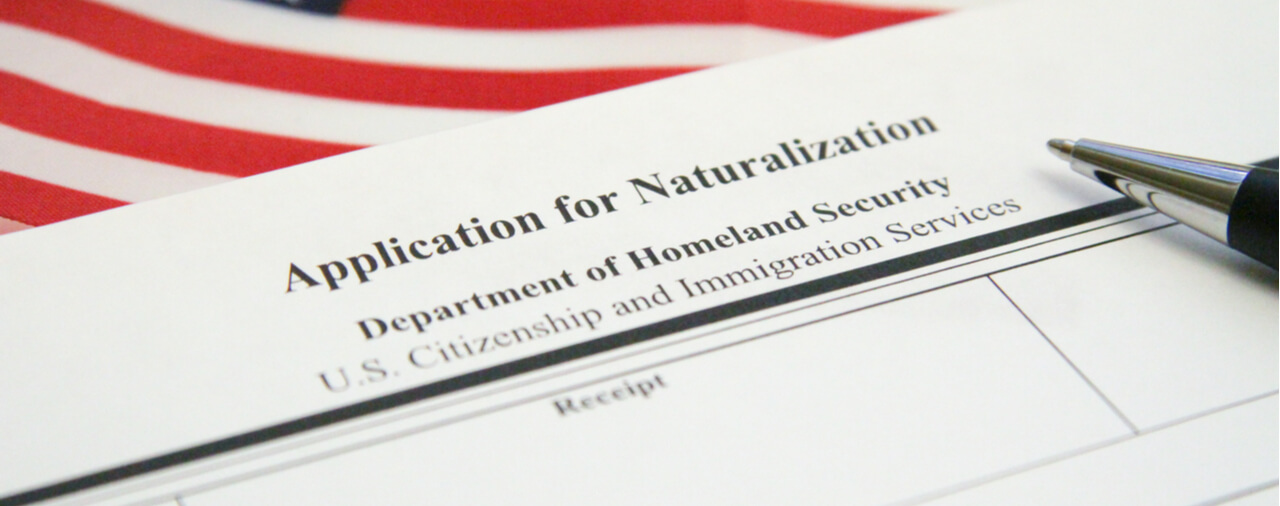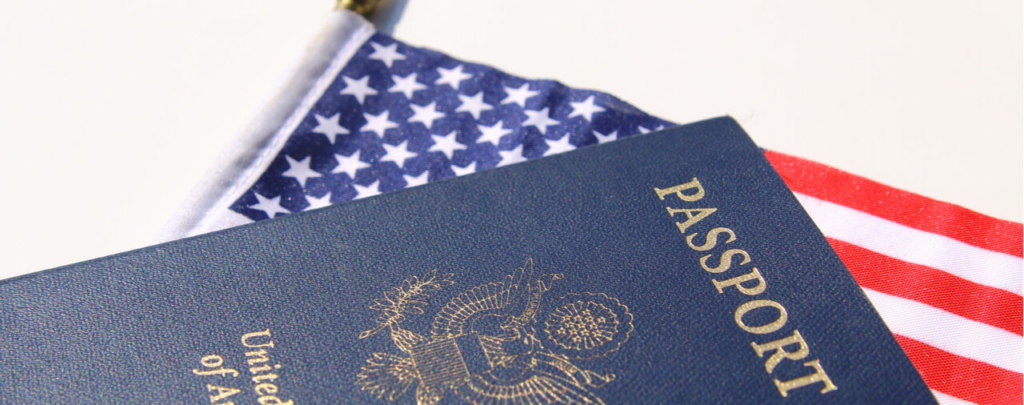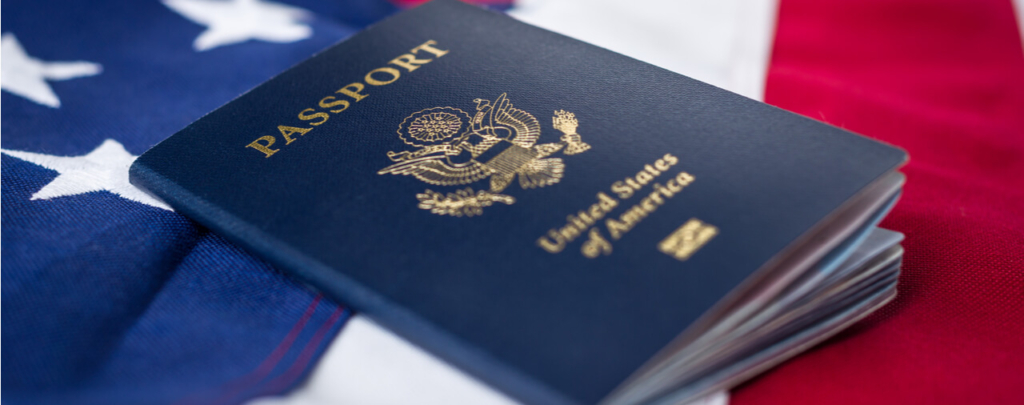- Introduction: Expedited Naturalization
- Section 305 of the Intelligence Authorization Act of 1997
- Discussion
- Conclusion
Introduction
Under very limited circumstances, the surviving spouse or child of a deceased alien who died while engaged in U.S. intelligence activities is eligible for naturalization under special rules. This provision is noted in the United States Citizenship and Immigration Service’s (USCIS’s) Policy Manual (PM) at 12 USCIS-PM D.5. However, the PM does not describe the provision, and no details about it are found in the Immigration and Nationality Act (INA) or the Department of Homeland Security (DHS) regulations. Rather, the rules regarding this naturalization provision are in section 305 of the Intelligence Authorization Act of 1997, Pub. L. 204-293 (October 11, 1996). In this article, we will reproduce section 305 of Pub. L. 204-293 and explain the rules regarding naturalization contained therein.
Please see our full articles to learn about continuous residence [see article], physical presence [see article], and other situations in which the continuous residence and physical presence requirements are modified or waived [see article].
Section 305 of the Intelligence Authorization Act of 1997
The following is the text of the relevant statute [PDF version].
Sec. 205. Expedited Naturalization.
- a. IN GENERAL- With the approval of the Director of Central Intelligence, the Attorney General, and the Commissioner of Immigration and Naturalization, an applicant described in subsection (b) and otherwise eligible for naturalization may be naturalized without regard to the residence and physical presence requirements of section 316(a) of the Immigration and Nationality Act, or to the prohibitions of section 313 of such Act, and no residence within a particular State or district of the Immigration and Naturalization Service in the United States shall be required.
- b. ELIGIBLE APPLICANT- An applicant eligible for naturalization under this section is the spouse or child of a deceased alien whose death resulted from the intentional and unauthorized disclosure of classified information regarding the alien’s participation in the conduct of United States intelligence activities and who-
- has resided continuously, after being lawfully admitted for permanent residence, within the United States for at least one year prior to naturalization; and
- is not described in subparagraph (A), (B), (C), or (D) of section 243(h)(2) of such Act.
- c. ADMINISTRATION OF OATH- An applicant for naturalization under this section may be administered the oath of allegiance under section 337(a) of the Immigration and Nationality Act by the Attorney General or any district court of the United States, without regard to the residence of the applicant. Proceedings under this subsection shall be conducted in a manner consistent with the protection of intelligence sources, methods, and activities.
- d. DEFINITIONS- For purposes of this section-
- the term ‘child’ means a child as defined in subparagraphs (A) through (E) of section 101(b)(1) of the Immigration and Nationality Act, without regard to age or marital status; and
- the term ‘spouse’ means the wife or husband of a deceased alien referred to in subsection (b) who was married to such alien during the time the alien participated in the conduct of United States intelligence activities.
Discussion
Now that we have the statute before us, we may discuss its provisions.
Firstly, in order to benefit from the expedited naturalization provision, the alien must be an LPR who was the spouse or child of a deceased alien “whose death resulted from the intentional and unauthorized disclosure of classified information regarding that alien’s participation in the conduct of United States intelligence activities.” This language severely limits the application of the provision by specifying not only that the deceased alien spouse must have died while conducting U.S. intelligence activities, but by also specifying that the death must have “resulted from the intentional and unauthorized disclosure of classified information regarding the alien’s participation in the conduct of United States intelligence activities.”
Secondly, the surviving spouse or child must have the approval of the following people in order to be eligible for expedited naturalization:
The Director of Central Intelligence;
The Attorney General;
The Director of Homeland Security (note, the Director of Homeland Security serves this role under current law in lieu of the Commissioner of Immigration and Naturalization)
Thirdly, the applicant must meet the two following requirements:
1. Have resided continuously in the United States after having been admitted for lawful permanent residence for at least one year prior to naturalization; and
2. Not be described in subparagraph (A), (B), (C), or (D) of section 243(h)(2) of the INA.
The first requirement means that in order to apply for expedited naturalization, the applicant must have been admitted as an LPR and have resided in the United States for at least one year subsequent to such admission. Although, as we will discuss, the applicant would be exempt from the continuous residence and physical presence requirements of section 316(a) of the INA, he or she must still meet this requirement.
The second requirement relies on an outdated provision of the INA. Section 243(h)(2) listed mandatory denial grounds to the suspension of deportation. Although not identical, these provisions were similar to the provisions for the mandatory denial of withholding of removal under the current statutory scheme. To learn about these provisions and cases that touched on the old section 243(h)(2), please see our full article [see article].
If the surviving spouse or child meets the foregoing requirements, he or she will be eligible for naturalization notwithstanding the requirements for continuous residence [see article] and physical presence [see article] found in section 316(a) of the INA. Additionally, the applicant will be eligible for naturalization notwithstanding any ineligibility under the provisions of section 313 of the INA. In general, section 313 of the INA renders ineligible for naturalization a person who is opposed to government or law or who favors totalitarian forms of government. Section 313 covers broadly advocating opposition to government or favoring totalitarian forms of government, being the member of an organization that does, or disseminating materials advocating such (note that this is a very brief description of the statute). The surviving spouse or child must be otherwise eligible for naturalization save for these exemptions from the generally applicable rules.
If a person is granted naturalization under the expedited naturalization procedure, he or she may be administered the oath of allegiance under section 337(a) by the Attorney General or by any federal district court of the United States. The oath may be administered without regard to the place of residence of the applicant. Section 305(c) of Pub. L. 204-293 specifies that the proceedings “shall be conducted in a manner consistent with the protection of intelligence sources, methods, and activities.”
Finally, section 305(d)(2) explains that, in order to qualify as a “child” for purpose of expedited naturalization, the child must only meet the requirement for being defined as a child of the deceased alien in section 101(b)(1)(A)-(E) of the INA without regard to age or marital status. This means that the child can be “aged out” or married and still qualify for expedited naturalization if he or she is otherwise eligible.
Conclusion
At 12 USCIS-PM D.5, the USCIS notes that the “surviving spouse/child of a person conducting U.S. intelligence” is eligible for a shortened period of naturalization in accordance with Section 305 of the Intelligence Authorization Act of 1997, Pub. L. 204-293 (October 11, 1996) (in a footnote). Those seeking basic information from the PM may find the information itself hard to find, buried in difficult-to-find legislation that was enacted nearly 20 years ago.
In truth, the scope of this expedited naturalization provisions is extremely limited, requiring both that the alien engaged in collecting U.S. intelligence died under highly unusual and specific circumstances, and that the surviving spouse or child be approved for naturalization by three federal agencies. Any person who is unsure if he or she may be eligible for a certain immigration benefit should consult with an experienced immigration attorney.





